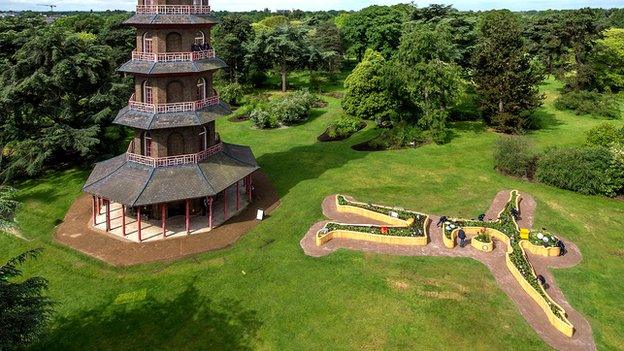Kew Gardens unveils science strategy
- Published
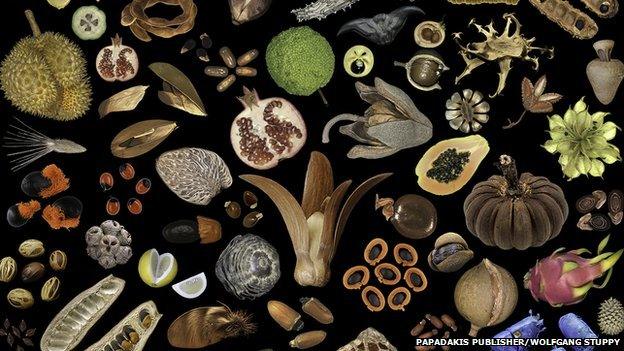
Kew Gardens has one of the largest collections of plants and fungi in the world
Kew Gardens has announced a new science strategy, outlining where it will focus its research in the coming years.
Plans include digitising its extensive plant and fungi collections, an annual health check of the world's flora, and hosting an MSc course in taxonomy.
However, the London-based botanical centre faces a pared-back future: funding cuts have left it with an annual deficit of £5m.
Just under a quarter of its core science jobs have gone.
Some have raised concerns that the loss of 47 research posts places its world-class reputation under threat.
Prof Kathy Willis, director of science at Royal Botanic Gardens, Kew, told BBC News: "We've cut back to the bones, and my job is to now rebuild around this new science strategy.
"Kew, over 255 years, has built up this extraordinary collection, both living and dried, of plants.
"But we've never really looked at what can we do with these collections, what global questions, what critical challenges can be addressed using this incredible resource."
The new strategy will focus research on climate change, food and fuel security, poverty, disease and ecological scarcity.
But while there are new initiatives, which also include a children's plant festival, some areas are going.
Work on restoration ecology, the science of repairing damaged habitats, will end. And there has been some criticism that the science jobs were cut before the strategy was unveiled.
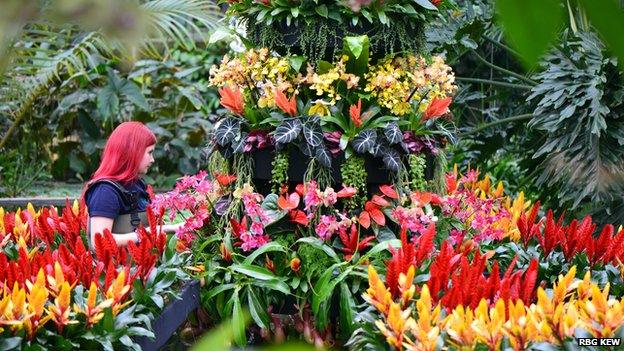
Kew Gardens attracts visitors to its events like the orchid festival, but its funding has been cut
Despite the new plans, Kew's financial future remains uncertain.
In 2014, the Department for Environment, Food and Rural Affairs (Defra) announced it was cutting Kew's annual budget by £1.5m.
On top of this, rising overheads and a reduction in funding from the Kew Foundation, the charity that supports the gardens, have left a black hole of £5m a year.
"We have a world-leading institution and it is under threat," said Zac Goldsmith MP, whose Richmond Park constituency includes Kew Gardens.
"When you have something that is a world-beating institution - and it's impossible to exaggerate how much of a gem, how much of a jewel Kew Gardens is - you look after it," he told BBC News.
"And we're talking about tiny figures in the context of Defra's overall budget. It just seems to me to be an act of vandalism to inflict that level of cutbacks on an institution of that sort."
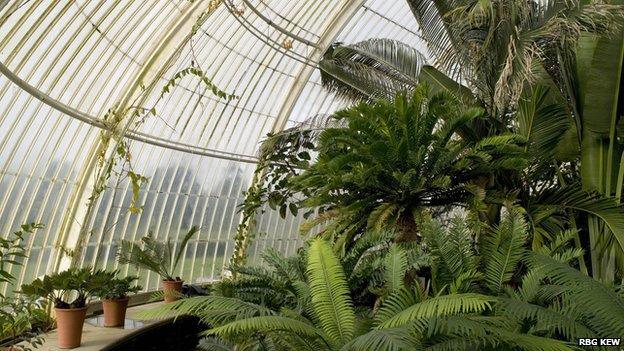
The cuts have attracted criticism from scientists and the public
More than 100,000 people signed a petition against the government's decision, and scientists and the public have expressed their concerns to the Science and Technology Select Committee, which is holding an inquiry into Kew's funding. It will release its findings in the coming weeks.
Prof Georgina Mace, from University College London, is a fellow of the Royal Society. She gave evidence to the select committee's hearing in December.
"Building up collections, in libraries, herbaria, museums and so on, are not things you can start and stop," she told BBC News.
Last year, the government said it was giving Kew two one-off payments. In September, it allocated £1.5m of extra money, and a further £2.3m was announced in December to plug the funding gap until 2016.
But Prof Mace said a temporary solution would not work,
"Although it is good for them that there have been these short reprieves, that is not the way to fund long-term science. You cannot maintain major facilities, expertise and collections when money is coming and going unpredictably.
"From what I have seen, they are pretty close to minimum critical mass at the moment. More cuts could mean it simply cannot function as an international plant centre with the reputation it has at the moment."
Defra said that it had managed to provide a "relatively good" settlement for Kew in 2015-16, and that the government had committed £6.6m in funding for its Millennium Seed Bank and £10m over four years for Temperate House.
"Kew is a world-leader in plant science and research," a spokesperson said.
"We are proud of the vital work carried out by Kew - that is why we have given it on average more money per year from 2010 than in the preceding three years. Through its restructuring, it will be able to maintain a world-class science facility for future generations."
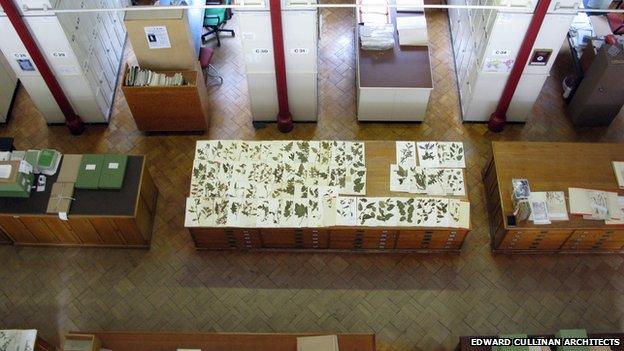
Kew will be digitising its collections as part of its strategy
There is no doubt that this is a turbulent time in Kew's history, but Prof Willis says she is hopeful that Kew will find a way to adapt and survive.
"Yes, we have been in the depths over the last 12 months, and anyone who's been through restructuring will recognise that. But we're coming out of that now," she told BBC News,
"We are rebuilding around the new science strategy, but also we have to look at alternative ways of raising our own funding as well. It is a global resource - and we have an extraordinary collection here."
Follow Rebecca on Twitter, external
- Published16 December 2014
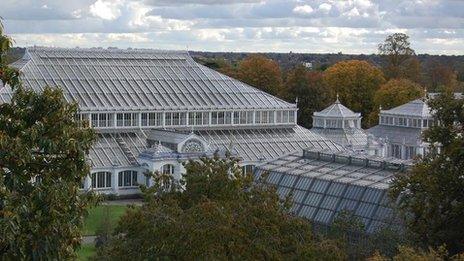
- Published3 September 2014

- Published22 April 2014

- Published31 March 2014
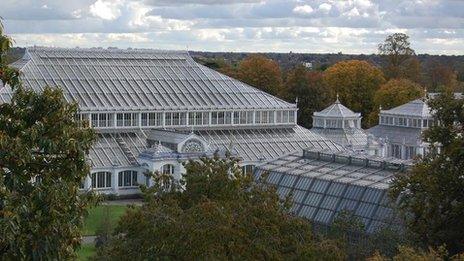
- Published12 August 2014
